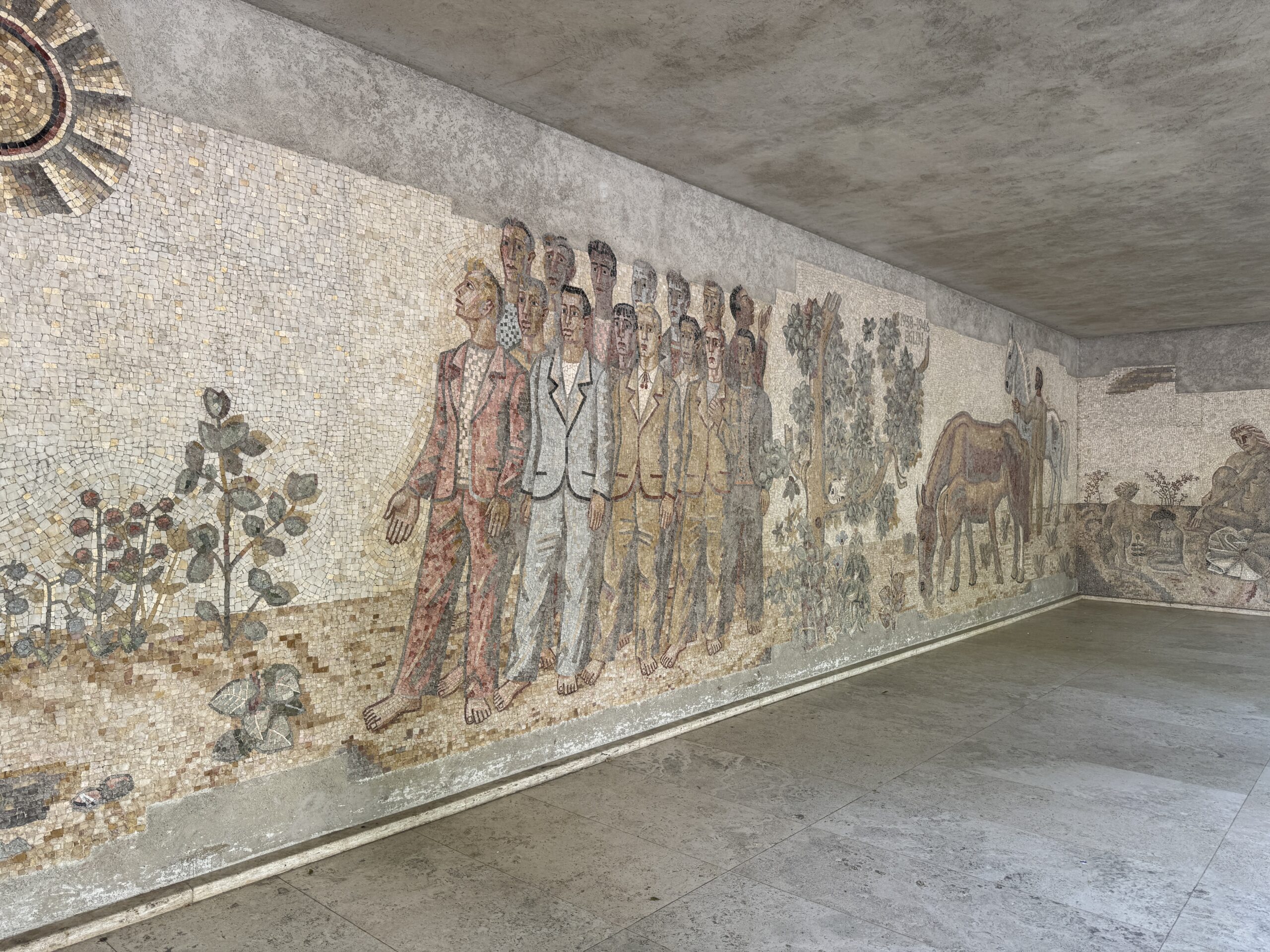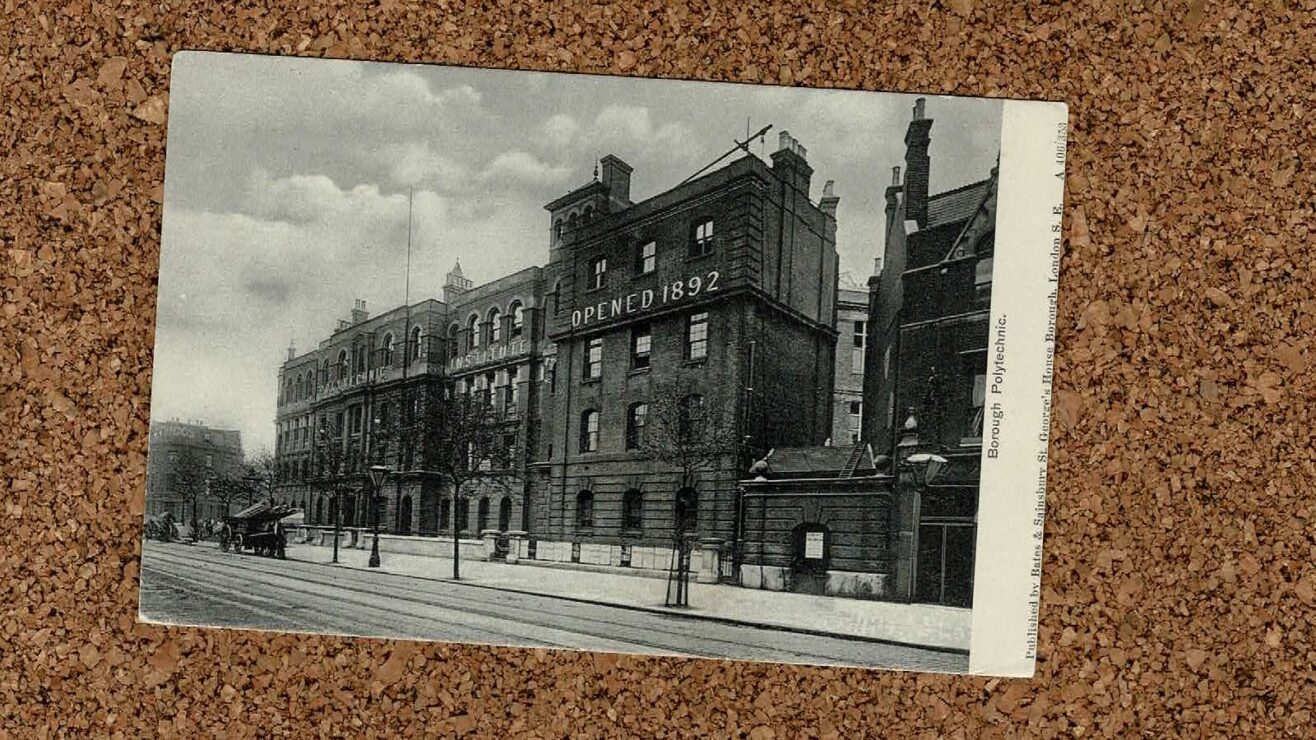This year’s Eurovision host city is Basel in Switzerland (“tiny but shiny”), which is also home to the country’s biggest and best Fasnacht.
Every year at the start of lent, the German-speaking regions hold a huge carnival with elaborate parades, artistic masks, and costumes, along with Guggenmusik – brass bands playing loud, off-beat music.
It’s the world’s only major carnival with Protestant rather than Catholic roots – so there’s all sorts of weird rules – picking up confetti from the ground is frowned upon, you must be a member of a registered “clique” to participate in costume, and masked participants have to remain completely anonymous during the parade.
It’s more focused on satire and social commentary than pure revelry, and naturally universities and their students have historically played a big role in that – faculties host workshops where students craft “Zeedel” (satirical verses distributed during Fasnacht) that cleverly comment on academic life or current events.
Some of the old student fraternities like Zofingia organise events like the Zofingerconzärtli, a big pre-Fasnacht performance featuring satire on key figures – this year there a parody of the University of Basel’s Rector Andrea Schenker-Wicki, with a cracking line about overstaying students who’ve “occupied study places for years and now even buildings”.
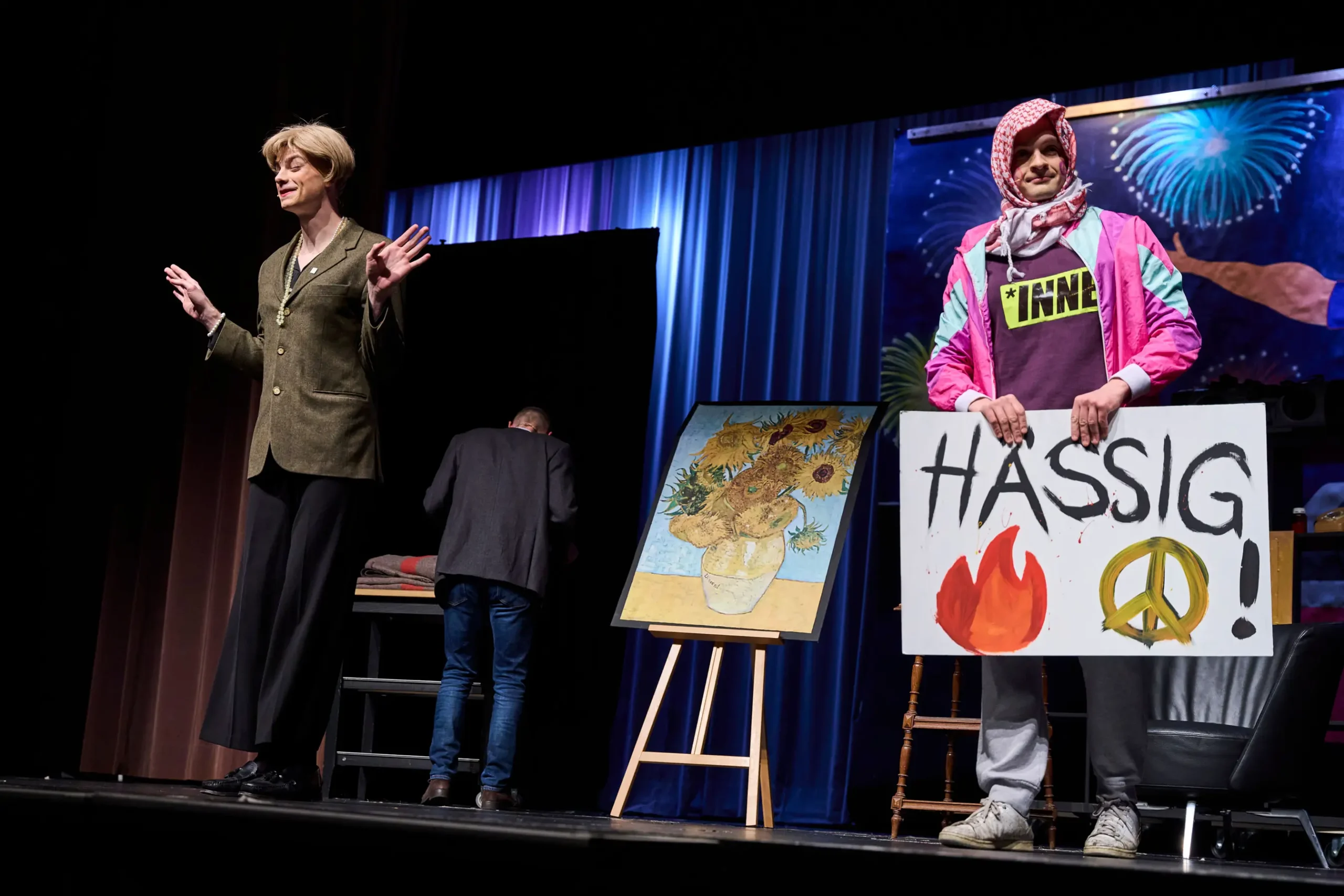
Drink a sip of beer as punishment
Zofingia has a problem, mind – its membership is male only, and last year the University of Lausanne and the Swiss Federal Institute of Technology Lausanne (EPFL) derecognised it as a result. The case escalated to the Swiss Federal Supreme Court – which ultimately ruled that public universities have the right to revoke recognition of associations that don’t align with gender equality principles:
“It is undoubtedly very valuable and can represent an advantage for one’s future professional network. If female students are denied access to this network solely because of their gender, they do not have the same opportunities as male students.
A few years ago, the Antifa student group in Basel attempted to prevent Zofinga students from making a public appearance at the Dies academicus (a big day when regular classes are suspended to allow for academic and cultural activities, and awards) on the basis of their discriminatory practices – activists pelted them with water balloons.
Having been the object of some of Zofingia’s Zofingerconzärtli jokes, it’s the activists that’ll be having the last light now, not leat because the University of Basel was the first in Switzerland to admit women as students in 1890 and is now under pressure to follow suit.
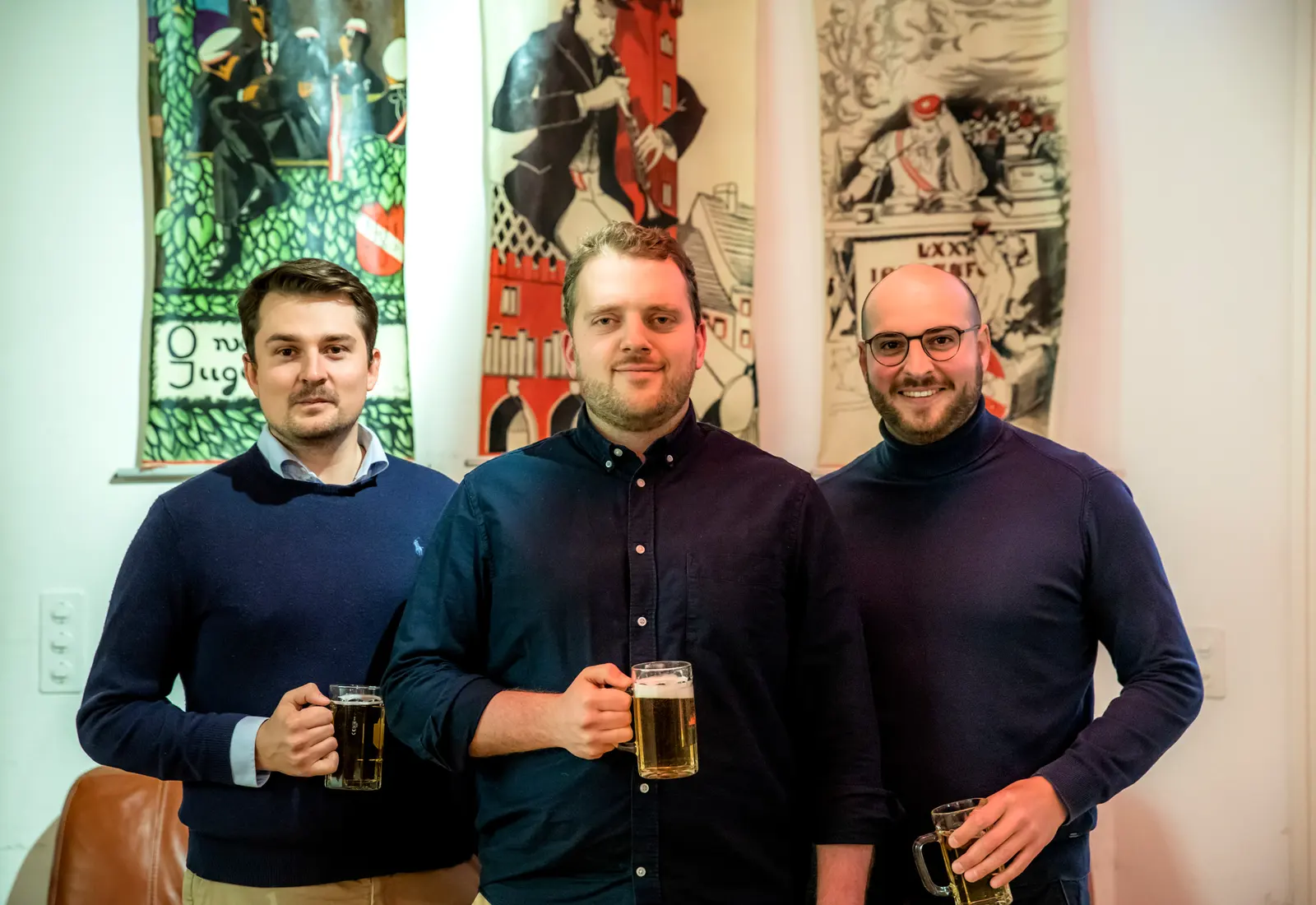
We noticed it and were surprised
Anyway back to this year’s Fasnacht – which starts at an ungodly 4am. This year one of the other cliques – the Central Club Basel (CCB) – created a theme for their lanterns criticizing breakdowns in communication in society and people existing in filter bubbles, all under the slogan “I won’t talk to you”.
The problem was that their 4am lantern depicted Donald Trump on a middle finger, and members wore giant middle finger masks. When videos went viral on TikTok and X (with over 23 million views), it was misinterpreted internationally as an anti-Trump protest rally in Switzerland – causing both diplomatic confusion and online outrage.
In the aftermath the clique’s leader, Andi Meier, argued they’d “hit the nail on the head” with the theme:
What’s happening now is, in fact, exactly that: A judgment is simply made and uploaded to social media without checking the facts.
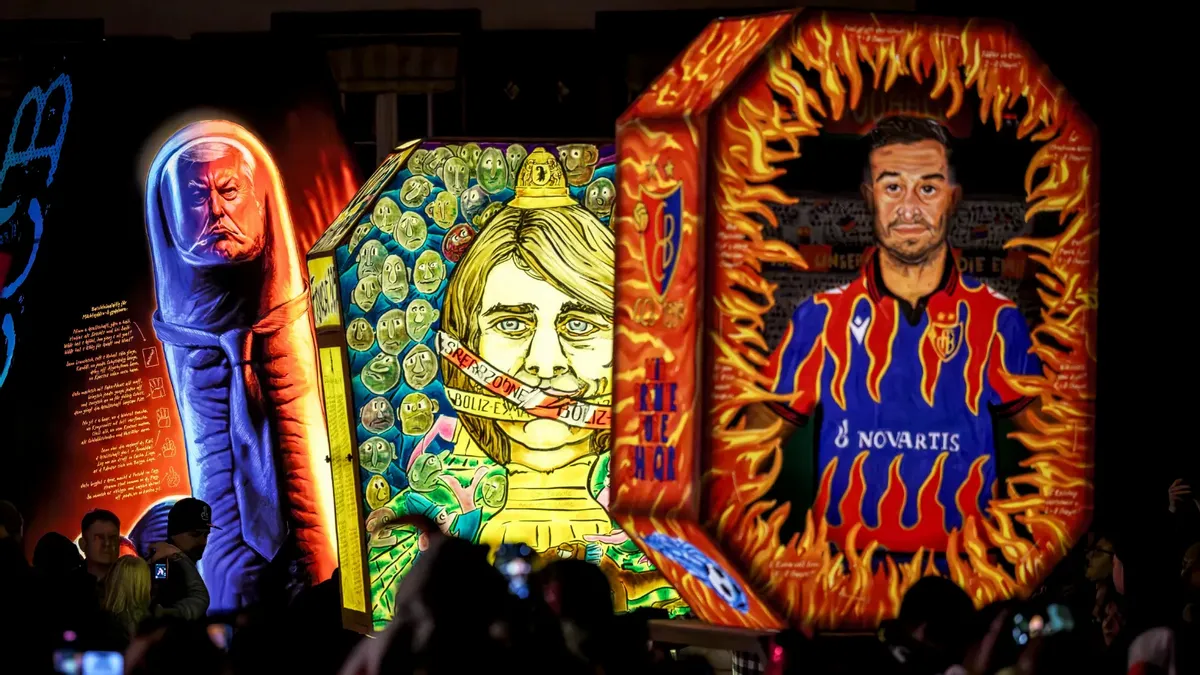
Ding-a-dong every hour
Outside of carnival season, the University of Basel feels like a lot of elite-ish universities around Europe – although there are some distinctive things to note.
Its “double bell” system marks the “akademisches Viertel” (academic quarter), a centuries-old tradition dating back to the university’s 1460 founding. The first bell rings on the hour to signal the official class time, while the second bell 15 minutes later indicates when classes actually begin.
The tradition originated from practical needs – navigating between scattered medieval buildings, allowing professors preparation time, and accommodating imprecise timekeeping. Today, courses are designated as either “cum tempore” (c.t.), beginning 15 minutes after the hour, or “sine tempore” (s.t.), starting precisely on time, with most following the c.t. convention.
It offers a fascinating “try before you buy” thing. The “Course Auditing Program” allows anyone that’s interested to attend specific lectures without formal enrollment – participants pay CHF 60 per credit hour, with a strong conversion rate into actual applications, as well as a healthy level of attendance from the general public.
Just as in plenty of other European universities, there’s an Ombudsman’s Office – available to all university members for the purpose of dealing with internal university concerns and complaints. There’s also an (academic) integrity ombudsperson and a personal integrity function that attempts to set professional standards for studying and working together in a respectful and professional way.
Regular readers will know I’ve started to become obsessed with degree structures – here the finances of delivery hang together via the sort of interdisciplinary approach we’ve seen elsewhere, such that UG 180 students studying (for example) English complete 75 credits in the Wahlbereich (intra-faculty electives outside of the subject), picking and mixing their way astound core modules in other disciplines.
Students can also pick up 6 ECTS for internships, and because the university puts a high value on student participation and associative activity, those organising groups and events or sitting on university committees can earn “campus credits” worth 6 ECTS towards their actual degree, as long as they demonstrate the hours they’ve put in and the learning gained.
Pharma chameleon
The student housing association, known as “WoVe,” was founded by students in 1970 as a self-help organization to draw attention to the precarious situation students faced on the housing market at the time – today it operates thousands of bedspaces with rents as low as £350 a month – no mean feat in a city where a schnitzel and chips in the university canteen can set you back £15.
Its AI initiative is interesting too – a broad-based project aimed at addressing the challenges posed to our society by the ongoing development of artificial intelligence. New research findings are bundled and made visible, university teaching is being developed for the age of AI, and employees are being empowered to deal constructively with AI in the course of their work.
Basel is big in pharma – home to giants like Roche and Novartis – but its innovation ecosystem has only recently gained momentum despite the city’s understated culture where “billionaires cycle to bakeries.” Its new Innovation Office has dramatically increased spinout rates by benchmarking against powerhouses like Oxford and MIT – and takes just 4-6 per cent equity in spinouts with no upfront license fees, though entrepreneurs still face Switzerland’s high incorporation costs (CHF100,000).
My favourite thing, though, is the day long matriculation ceremony for new students – which along with the usual inspiring talks and introduction to the university’s history and traditions, involves students queuing up to sign an ornate matriculation book with carefully preserved pages of signatures dating back decades – all of which creates a profound sense of continuity and belonging that the Freshers Foam Party back home is never going to match.
